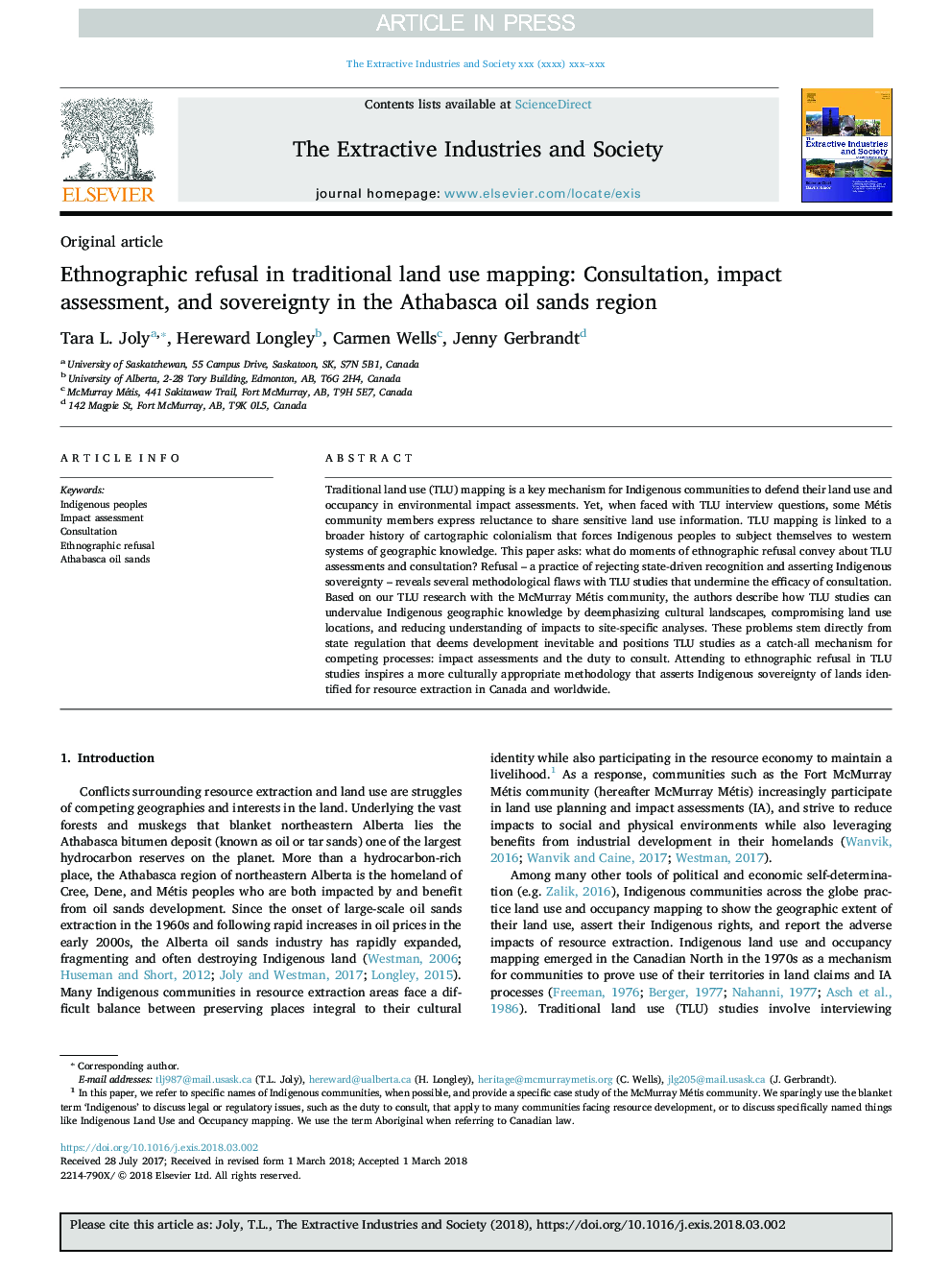| Article ID | Journal | Published Year | Pages | File Type |
|---|---|---|---|---|
| 7454229 | The Extractive Industries and Society | 2018 | 9 Pages |
Abstract
Traditional land use (TLU) mapping is a key mechanism for Indigenous communities to defend their land use and occupancy in environmental impact assessments. Yet, when faced with TLU interview questions, some Métis community members express reluctance to share sensitive land use information. TLU mapping is linked to a broader history of cartographic colonialism that forces Indigenous peoples to subject themselves to western systems of geographic knowledge. This paper asks: what do moments of ethnographic refusal convey about TLU assessments and consultation? Refusal - a practice of rejecting state-driven recognition and asserting Indigenous sovereignty - reveals several methodological flaws with TLU studies that undermine the efficacy of consultation. Based on our TLU research with the McMurray Métis community, the authors describe how TLU studies can undervalue Indigenous geographic knowledge by deemphasizing cultural landscapes, compromising land use locations, and reducing understanding of impacts to site-specific analyses. These problems stem directly from state regulation that deems development inevitable and positions TLU studies as a catch-all mechanism for competing processes: impact assessments and the duty to consult. Attending to ethnographic refusal in TLU studies inspires a more culturally appropriate methodology that asserts Indigenous sovereignty of lands identified for resource extraction in Canada and worldwide.
Related Topics
Life Sciences
Environmental Science
Management, Monitoring, Policy and Law
Authors
Tara L. Joly, Hereward Longley, Carmen Wells, Jenny Gerbrandt,
